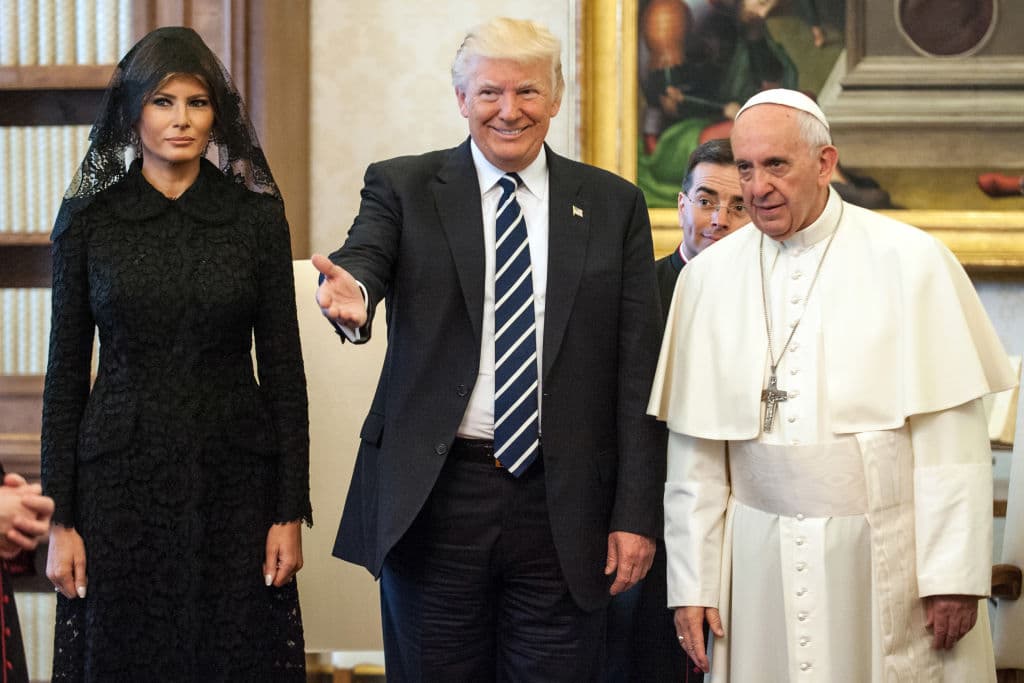Donald Trump’s tribute to the late Pope Francis was, as anticipated, far from conventional—and the internet had plenty to say about it.
On April 21, the news of Pope Francis’s passing sent shockwaves of sorrow around the globe. Leaders from all corners of the world expressed their condolences, including former U.S. President Donald Trump. His message, posted on Truth Social, began in a familiar tone: “Rest in peace Pope Francis! May God bless him and all who loved him!” He also called for U.S. flags to be flown at half-staff in honor of the pontiff.
However, it wasn’t the condolence message that garnered attention—it was Trump’s upbeat announcement that he and Melania would be attending the funeral. In his characteristic optimistic style, he wrote: “Melania and I will be going to the funeral of Pope Francis, in Rome. We look forward to being there!”
This prompted a flurry of reactions. Critics and commentators on X (formerly Twitter) didn’t hold back. Many found the phrase “We look forward to being there” oddly cheerful—more suitable for a garden party or gala than a papal funeral. One user remarked, “Bold choice of words for a funeral,” while another quipped, “He thinks he’s headed to Coachella, not Vatican City.” Sarcasm was rampant, with one person tweeting, “Maybe he’ll review the wine list while he’s there,” and another dryly adding, “Can’t wait to see what he wears.”
On the other hand, some defended his sentiment, arguing that showing up and paying respect mattered more than the wording. “At least he’s attending. That’s more than many expected,” one user noted, while another remarked, “Tone aside, it’s right that world leaders show up for a man like Pope Francis.”
Their relationship has always been complex.
When Francis was elected in 2013, Trump expressed admiration, tweeting that the new Pope’s humility was commendable and reminiscent of himself—a classic Trump move, blending praise with a self-congratulatory nod.
However, ideological differences grew over time. One of the most notable confrontations occurred in 2016 when Pope Francis questioned the morality of building border walls. While he didn’t mention Trump by name, the pontiff suggested that those who “only think about building walls, not bridges, are not Christian.” Trump’s response was quick and pointed: “For a religious leader to question a person’s faith is disgraceful,” he stated.

Despite their differences, Donald Trump and Pope Francis met in person during Trump’s visit to the Vatican in 2017. Following the encounter, Trump described it as “fantastic,” although the meeting was brief and noticeably awkward. Over time, their paths diverged even further, with Pope Francis continuing to champion issues like immigration, climate action, and social justice—stances that often conflicted with Trump’s policies.
Even after returning to office in 2025, Trump faced criticism from the Pope for his renewed immigration crackdowns, with Francis condemning mass deportations as “a disgrace.” Nevertheless, Trump’s statement following the Pope’s death adopted a more measured tone, and his decision to attend the funeral indicates at least a ceremonial level of respect.
Vice President JD Vance, who had a more personal connection with Pope Francis, also shared a tribute. Having met the Pope just a day before his passing, Vance recalled the encounter with reverence, noting, “He was obviously very ill, but I’ll always remember him for a homily he gave during the early days of COVID. It was really quite beautiful.”
As the world prepares for the formal farewell, the Vatican has confirmed that Pope Francis’s funeral will take place on Saturday, April 26, at 10 AM local time in St. Peter’s Square. Following the service, his body will be taken to the Basilica of Santa Maria Maggiore—a humble request he made in his final will, preferring it over the traditional burial site at St. Peter’s Basilica.
Trump’s trip to Rome will also mark his first official foreign visit since regaining the presidency. While the former president is unlikely to blend into the somber atmosphere, his presence will be closely scrutinized for both diplomatic and visual implications.
As the world prepares to bid farewell to a spiritual leader who often confronted political power with moral clarity, Trump’s involvement—and his choice of words—serve as a reminder of the unique role he continues to play on the global stage.
So the question lingers: Was the phrase “looking forward to being there” a tone-deaf misstep, or simply another instance of Trump being, well, Trump?
We’d love to hear your thoughts—does intent outweigh tone? Or should words always reflect the gravity of the moment?





